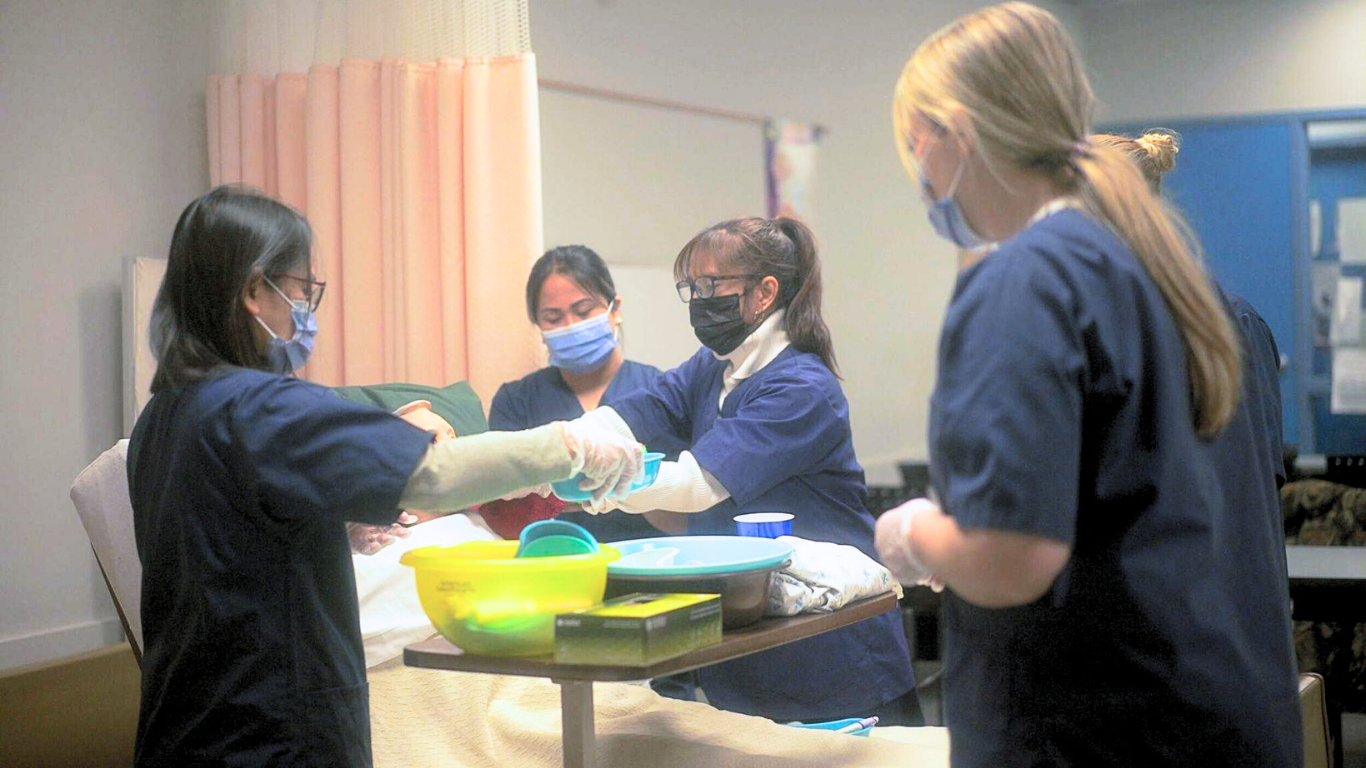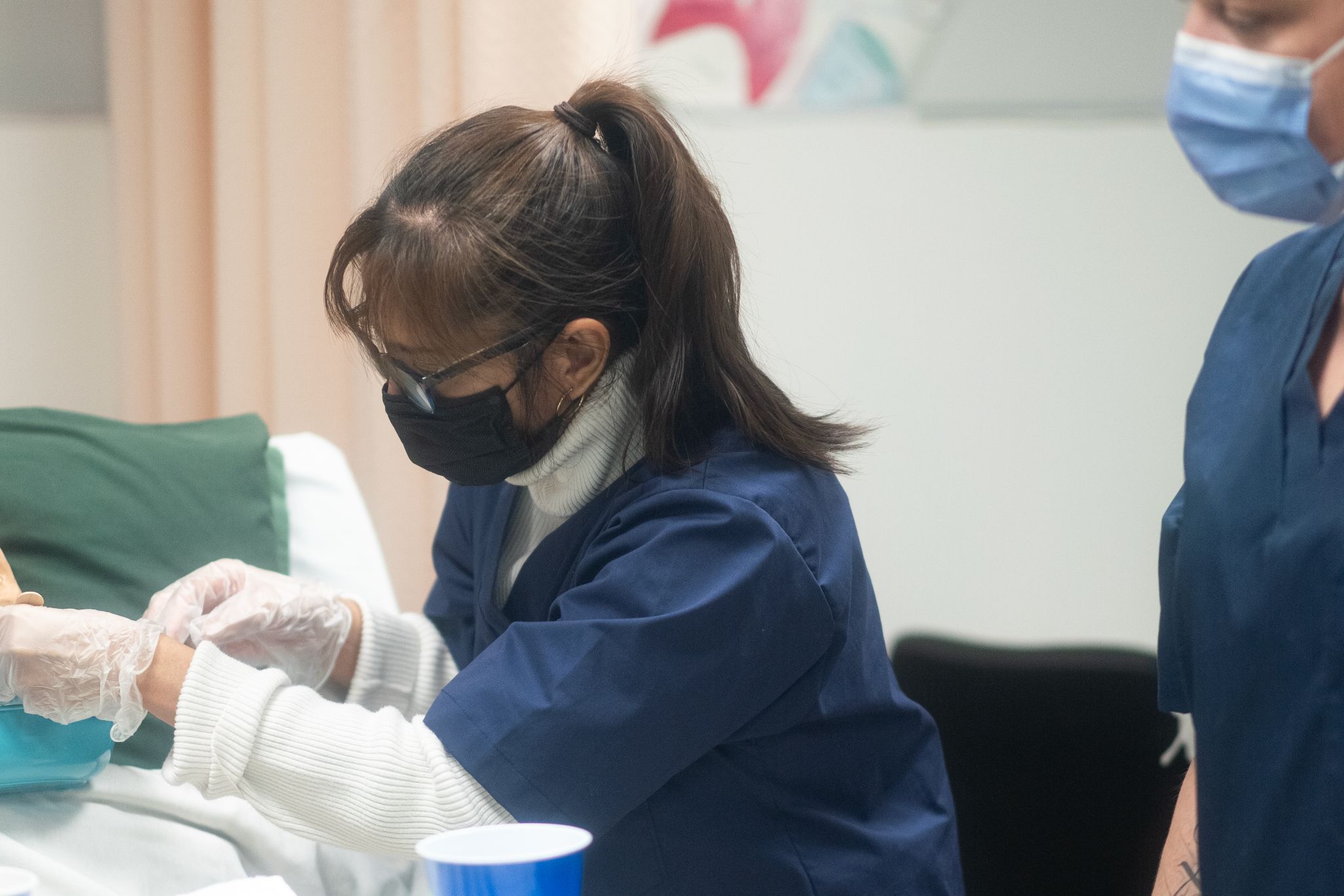Unveiling the Core Responsibilities: Personal Support Worker Duties Explained
September 29, 2023
Personal Support Workers (PSWs) are frontline champions who ensure many individuals’ daily care and well-being. A Personal Support Worker typically assists clients with daily personal care routines like bathing and dressing, prepares nutritious meals, offers medication reminders, provides mobility assistance, and offers emotional and social support. They also perform light housekeeping duties and maintain records of the client’s health and activities.
This post seeks to illuminate these duties and responsibilities, offering a clearer understanding of the essential function PSWs play in healthcare.
Who Is a Personal Support Worker?
A PSW is a caregiver trained to provide assistance to individuals in need. Whether it’s the elderly, those with chronic illnesses, or individuals with physical disabilities, PSWs are equipped to offer support that enables these people to lead more independent, fulfilling lives.
A Personal Support Worker cares for a patient’s physical, mental, and emotional health, especially when illness or age impedes their self-care capabilities. Critical tasks for a PSW include preparing balanced meals, assisting with everyday hygiene routines, and collaborating with a diverse healthcare team to ensure the highest standard of care.

The duties and responsibilities of a PSW extend beyond merely assisting with daily tasks. They are the heart and soul of a care system designed to offer holistic support to individuals who need it most. Personal support worker duties, though varied, center on the individual’s well-being, ensuring that their physical and emotional needs are met. It’s a role that requires compassion, dedication, and a genuine love for helping others – and it’s a role that makes a world of difference every single day.
Understanding the Core Personal Support Worker Duties
One of the most immediate Personal Support Worker duties is personal care. This includes helping individuals with daily tasks such as bathing, dressing, grooming, and mobility. This duty ensures that individuals remain hygienic and dignified, even when they cannot perform these tasks independently. Nutritional needs are also essential, and a PSW is often responsible for meal planning, preparation, and sometimes feeding those who cannot do so for themselves. It’s not just about making food; it’s also about ensuring that meals are balanced and cater to any dietary restrictions.
While PSWs are not typically qualified to administer medications, they play a significant role in medication management. This could mean reminding the individual to take their pills, assisting in organizing a medication schedule, or even helping to apply medicinal creams or ointments. For those with physical limitations, moving around can be a challenge. Personal support worker duties include assisting with mobility – helping someone out of bed, aiding with transfers, or providing support during physiotherapy exercises.

Beyond the physical, the emotional well-being of an individual is paramount. PSWs often become confidants and friends to those in their care. They listen, provide companionship, and may even accompany individuals to social events or outings, ensuring a holistic approach to care. Further, a clean and safe environment is vital for health and recovery. PSWs may engage in light housekeeping duties like cleaning, laundry, or even shopping for essentials, ensuring the living environment remains conducive to healing and daily living.
Another crucial responsibility is keeping track of an individual’s daily activities, health changes, and potential concerns. PSWs contribute to the broader healthcare team’s knowledge by documenting these details, facilitating better long-term care strategies. As part of an extended team, PSWs liaise with nurses, doctors, therapists, and other healthcare professionals. They provide vital insights into the patient’s daily life and any immediate concerns, bridging the gap between home care and clinical care. Personal Support Workers (PSWs) skills involve communication, problem-solving, emotional intelligence, and time management.
FAQs To Consider:
What are the primary duties and responsibilities of a PSW?
A Personal Support Worker cares for a patient’s physical, mental, and emotional health, especially when illness or age impedes their self-care capabilities. Critical tasks for a PSW include preparing balanced meals, assisting with everyday hygiene routines, and collaborating with a diverse healthcare team to ensure the highest standard of care.
What skills are required to be a personal support worker?
Personal Support Workers (PSWs) skills involve effective communication, problem-solving, emotional intelligence, and time management – in order to provide the best care to their patients.
What is a typical day for a personal support worker?
A Personal Support Worker typically assists clients with daily personal care routines like bathing and dressing, prepares nutritious meals, offers medication reminders, provides mobility assistance, and offers emotional and social support. They also perform light housekeeping duties and maintain records of the client’s health and activities.
Are you interested in Personal Support Worker training?
Contact Medix College for more information.




